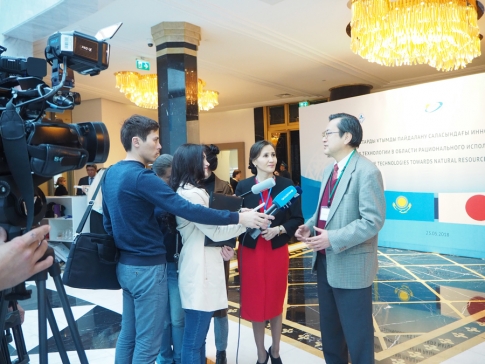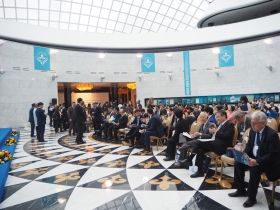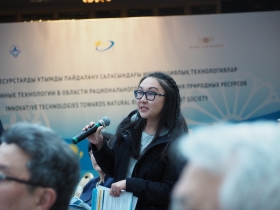* Information concerning affiliation/post/profile of the laureate is current at the time of the Symposium.
International Symposium 2018 in Astana
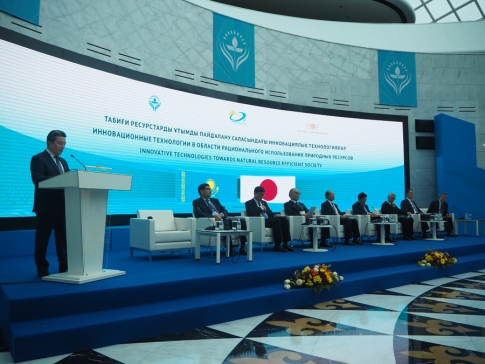
Innovative Technologies towards a Sustainable Society
Together with The Library of the First President of Kazakhstan–Elbasy (Nazarbayev Centre), directly managed by the Kazakhstan government, the Honda Foundation hosted a symposium entitled, “Innovative Technologies towards a Natural Resource Sustainable Society,” in Astana, the capital of the country, on May 23, 2018. The symposium was attended by a total of 176 delegates from the Honda Foundation and research institutes in Kazakhstan.
The opening speeches were delivered by His Excellency Ichiro Kawabata, the Japanese ambassador to Kazakhstan; Dr. Amerkhan Rakhimzhanov, Duputy Director of The Library of the First President of Kazakhstan–Elbasy; Mr. Anarbek Karashev, Executive Secretary of the Ministry of Foreign Affairs of the Republic of Kazakhstan and Mr. Hiroto Ishida, the President of the Honda Foundation. The following introductory session was given by Dr. Michiharu Nakamura, former president of the Japanese Agency for Science and Technology; and Mr. Akira Kojima, a Chairman of the international Committee of the Honda Foundation. From Kazakhstan, Mr. Bolat Akchulakov, Vice-Minister of Energy of the Republic Kazakhstan, and Mr. Ruslan Baimishev, all presented speeches.
Kazakhstan is known as a country possessing rich natural resources, including oil, gas, and minerals such as coal, uranium, copper, lead, and zinc. Kazakhstan is currently diversifying its industry towards sustainable development through the promotion of innovation while valuing foreign capital inflow towards further development of the country’s energy and mineral resources. The symposium was divided into three sessions in order to discuss issues related to the development of Kazakhstan’s economic activities, centered around energy resources. Covering a variety of topics such as legal matters, management, and human resource development, lively policy discussions were held from the viewpoint of the changing needs of the times. In the final wrap-up session, opinions were actively exchanged over the process of innovation that Japan and Kazakhstan should aim at based on the discussions held in the previous sessions.
* The following is a summary of the presentations at the symposium.
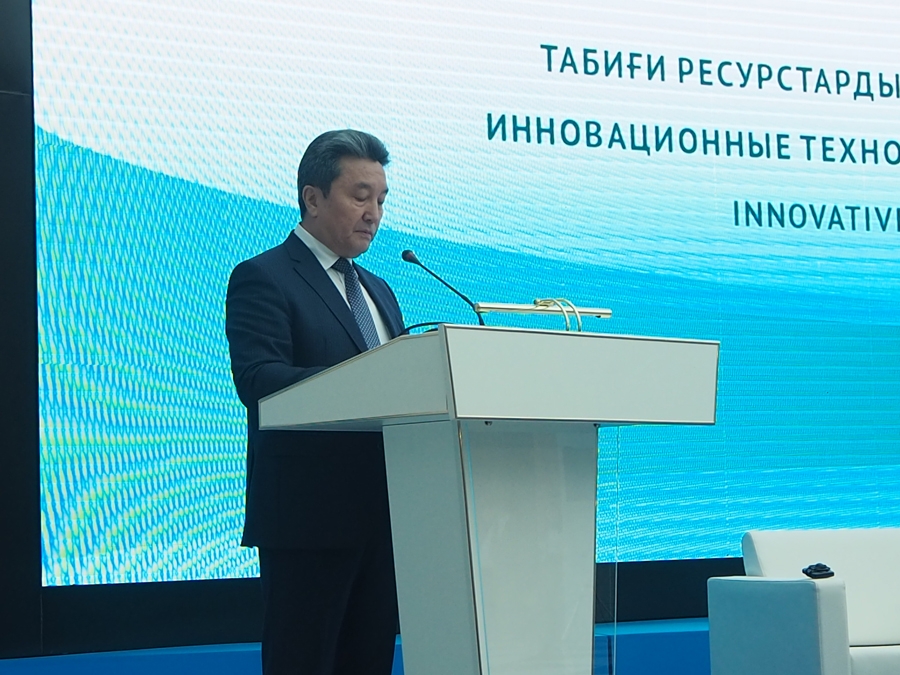
◎Opening Remarks
Dr. Amerkhan Rakhimzhanov
Deputy Director of the Library of the First President of the Republic of Kazakhstan-Elbasy
Dr. Rakhimzhanov reported that Kazakhstan had developed green economy policies early on when the importance of efficient usage of natural resources was increasing across the globe. The country participated in the United Nations Conference on Sustainable Development (Rio+20) in 2011 and held Expo 2017 Astana under the theme of “Future Energy.” The professor emphasized that Kazakhstan has been continuously introducing energy usage reduction technologies over the years. He finalized his presentation by expressing his hopes for the generation of new solutions to achieve both natural resource conservation and sustainable economic development.
-
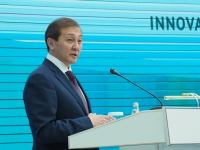
-
Session 1
Innovative technologies and legal aspects for the efficient use of natural resources ─Transformation of industrial structure: industrial policy, various reforms in the field of advanced technologies─
Mr. Baurzhan Smagulov
Chairman of the Board of JSC “Institute of Electrical and Energy Saving Development (Kazakhenergoekspertiza)”
Mr. Smagulov’s presentation introduced how Kazakhstan is aiming to reduce energy consumption per GDP to 25% by 2025 and to 50% by 2050 as the country has higher energy consumption per GDP compared to other OECD countries. He mentioned that active participation by Japanese corporations, organizations, and NPOs was helpful in progressing the energy preservation initiatives in the country. He also reported that the energy efficiency card scheme, which was established as a part of such participation, has attracted investors to domestic energy-saving projects.
-
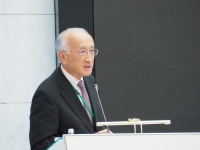
-
Session 2
Success stories in the field of natural resources management in the practice of environmental technologies ─Japan and Kazakhstan success stories and facing new challenges─
Mr. Nobuo Tanaka
Former Secretary General of the IEA (International Energy Agency)
Mr. Tanaka introduced the four innovative changes referred to in World Energy Outlook 2017 by the International Energy Agency (IEA): the shale revolution that is making the U.S. a major oil and gas producer; the solar revolution that could make solar power the cheapest of all the types of electricity from different sources; the coal to natural gas green revolution that has reduced air pollution in Beijing, China; and the electrification revolution that can help establish a low-carbon powered society. Three of these revolutions are occurring in China, and, he concluded, the world will need to adapt to such changes for energy security.
-
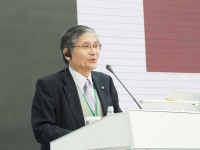
-
Session 3
Future technologies for a sustainable society ─Human resource development for industrial structure transformation─
Dr. Hiroto Yasuura
Vice President of Kyushu University
Dr. Yasuura believes that the revolutionary innovations that we will achieve in the future will be brought about by ICT, and presented the example of big data usage by Kyushu University. Seeing the entire campus as the field of experiment from which to draw out thier vision, they collected and analyzed 180,000 logs of e-textbooks by lecturers and students and utilized the resulting big data for academic advice for students. Energy and resource consumption have also been monitored, such as water recycling and usage of hydrogen energy, from a variety of viewpoints. Dr. Yasuura concluded his presentation by stating that he hopes that these activities will contribute to solutions for the SDGs.
